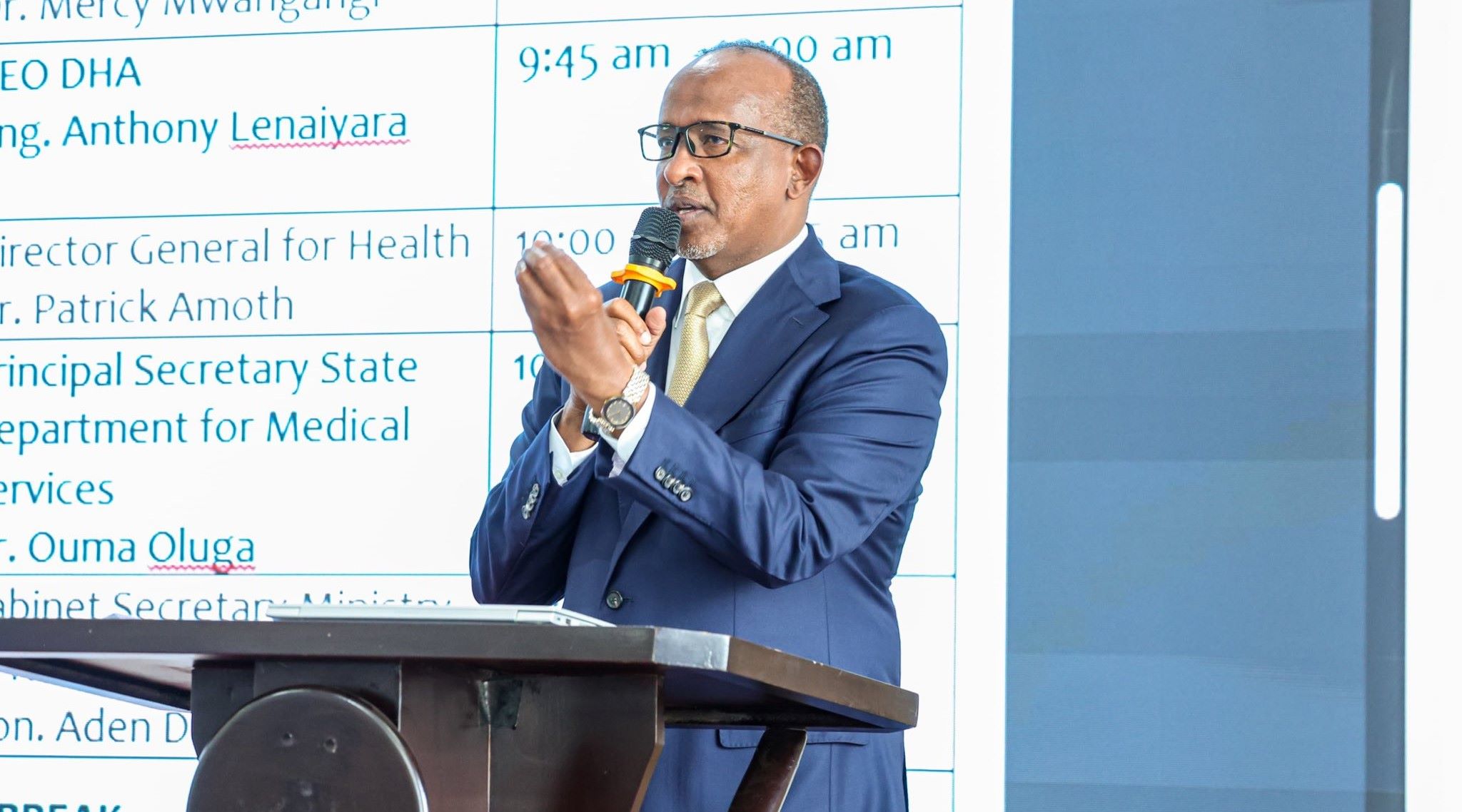Government begins settling Sh5.3 billion NHIF debts, prioritises small and medium private hospitals

CS Duale noted that claims above Sh10 million will undergo verification by an independent committee before settlement to protect public funds.
Private hospitals owed between Sh1 million and Sh10 million by the defunct National Health Insurance Fund (NHIF) will be the first to receive their payments, Health Cabinet Secretary Aden Duale has announced, as the government begins settling pending bills worth Sh5.3 billion.
Speaking on Thursday during a high-level consultative meeting with private healthcare providers and senior management of the Social Health Authority (SHA), Duale noted that claims above Sh10 million will undergo verification by an independent committee before settlement to protect public funds.
More To Read
- TSC confirms shift to SHA cover for teachers from December 1
- TSC sued over teachers’ migration from MINET insurance to SHA
- Ruto announces increase in cancer treatment cover to Sh800,000 under SHA from December 1, 2025
- Government to review SHA packages amid calls for better cancer care
- Senate probes detention of new mothers in hospitals over unpaid bills
- Ruto targets faster healthcare access with KEMSA direct medicine deliveries to hospitals
The CS convened the meeting to deliberate on strategies for strengthening service delivery under the Taifa Care model, a key pillar in scaling up the roll-out of Kenya’s Social Health Insurance (SHI) system. He said the government is keen on ensuring continuity of services during the transition period, noting that private providers are crucial partners in the reform.
“The government will commence repayment of the pending NHIF bills amounting to Sh5.3 billion, prioritising hospitals owed between Sh1–10 million. To safeguard public resources, an independent committee will verify all claims above Sh10 million before settlement,” Duale said.
President William Ruto had in March announced that all claims below Sh10 million would be cleared, while those above that threshold would be reviewed by a verification committee before payment. He said the move would unlock debts owed to 91 per cent of facilities contracted by NHIF.
Duale set up the James Masiro-led verification committee through a gazette notice on March 28. He inaugurated the team on April 8 and launched it nine days later. The committee was expected to complete its task within 30 days of formation, following complaints of unpaid debts after NHIF was replaced by SHA.
However, the verification panel was yet to begin its work, raising fears of further delays in confirming legitimate claims above Sh10 million. Kenya Association of Private Hospitals (KAPH) had expressed concerns that providers had not received guidance on which smaller claims would be honoured immediately.
By the time NHIF was declared redundant on November 22, 2024, hospitals had raised claims of Sh33 billion accumulated between July 2022 and September 2024. President Ruto confirmed the figure in his March 5 statement, saying the debt had undermined the ability of facilities to provide services under SHA.
“A whopping debt of Sh33 billion had built up by the time the NHIF was wound up, affecting the ability of health facilities to provide services under the Social Health Authority (SHA),” the President said.
The President’s remarks prompted faith-based hospitals to issue a 14-day ultimatum to the government, threatening to withdraw services unless arrears were cleared. The facilities later suspended their strike threat after a meeting with Ruto.
Other key action points agreed on during the Thursday meeting included the appointment of SHA relationship managers for contracted facilities, the establishment of a joint SHA–DHA service desk at SHA headquarters and Huduma Centres and the introduction of real-time communication channels on policy amendments.
Duale further emphasised the government’s commitment to fully incorporating private providers and faith-based organisations (FBOs) in the County-to-County rollout of Taifa Care.
He said this approach would “create a platform for dialogue and collaboration to accelerate access to effective, affordable healthcare nationwide.”
During a panel session, the CS highlighted ongoing reforms to fast-track Kenya’s Universal Health Coverage (UHC) agenda, stressing the importance of timely payments for sustainability.
“Timely payments by SHA will be critical for the long-term sustainability of this programme,” he said.
The consultative session drew private hospital representatives from seven counties, including Kajiado, Embu, Machakos, Nairobi, Kiambu, Nyeri and Kirinyaga, representing 103 healthcare facilities.
Top Stories Today














































